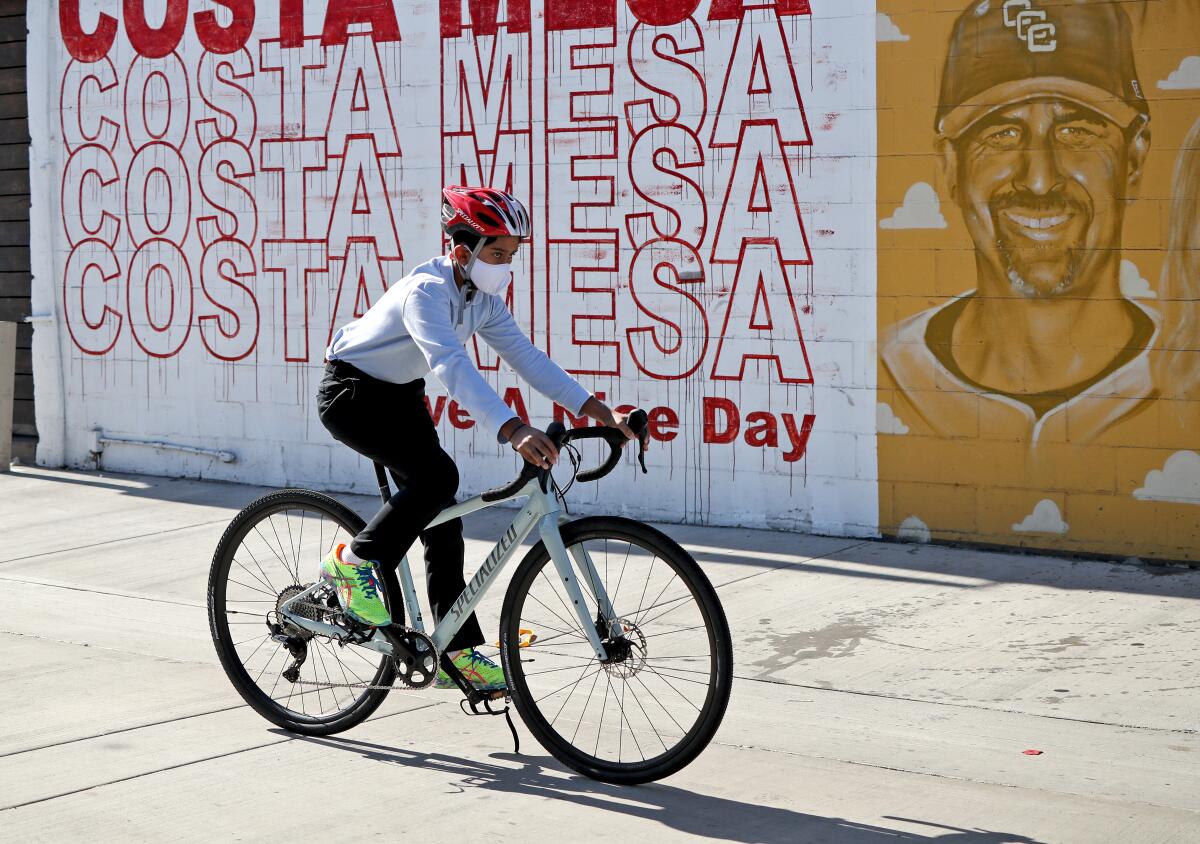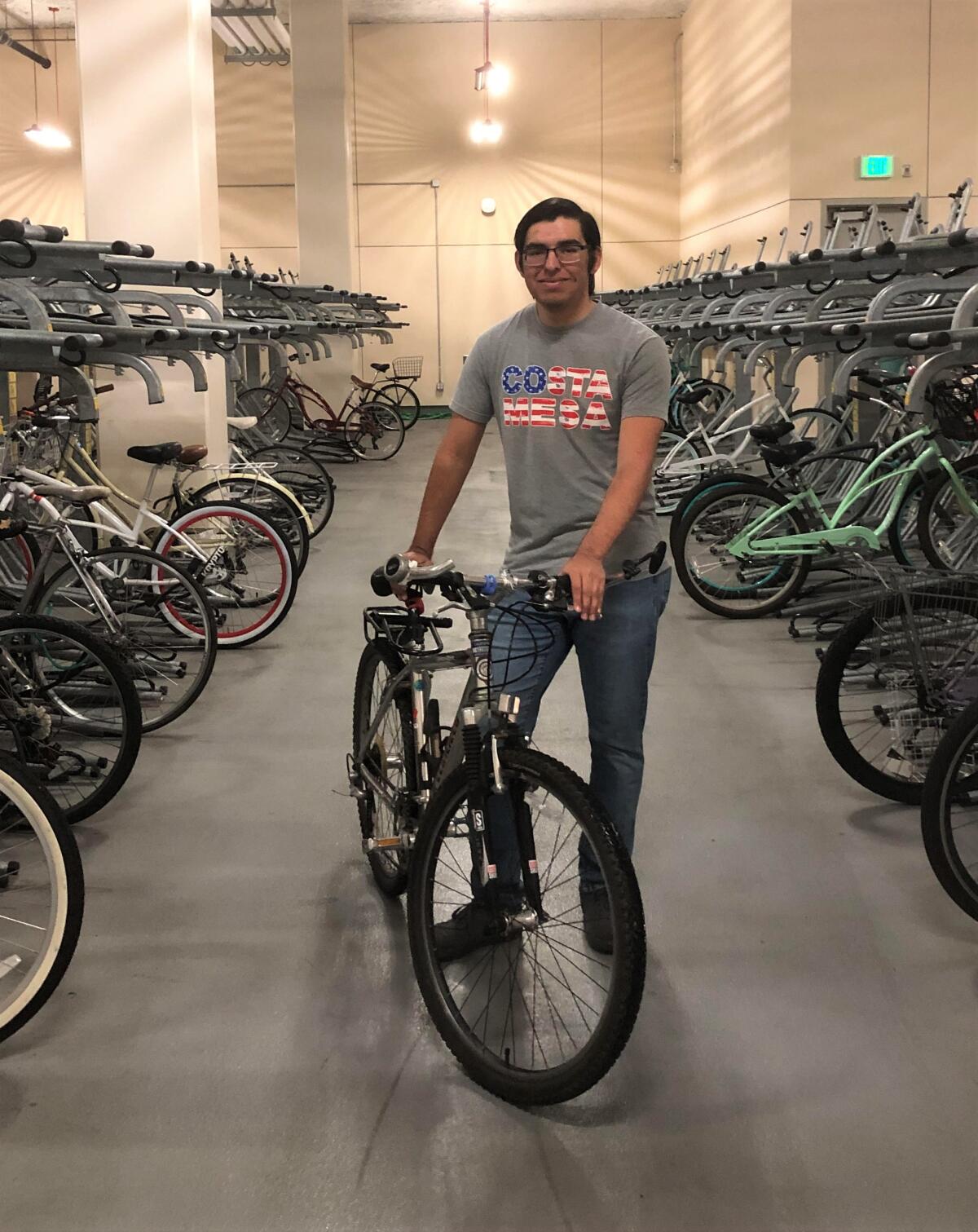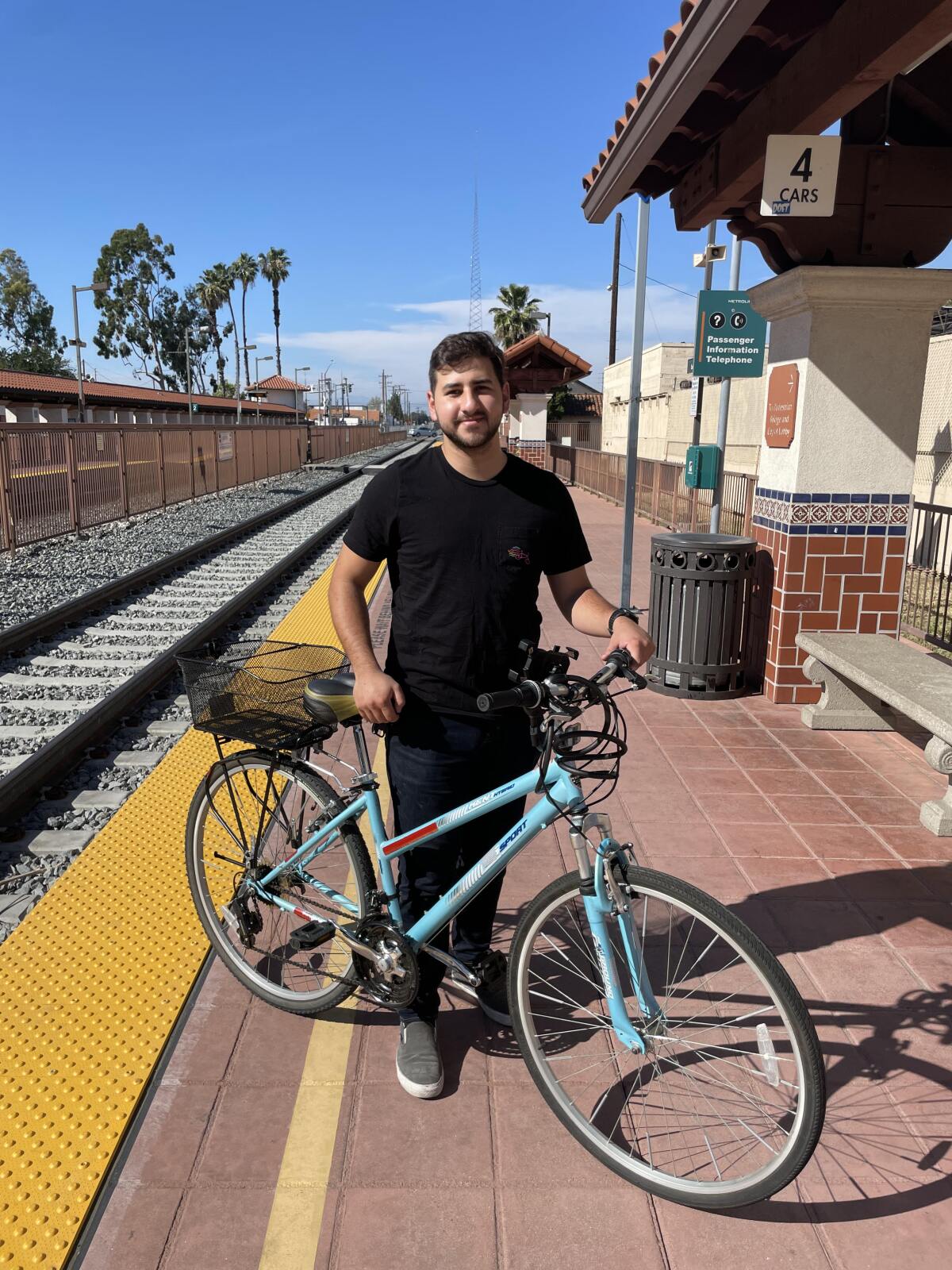State incorporates ideas of 2 Costa Mesans in ban of bike licensing laws they called ‘selectively enforced’

- Share via
Costa Mesa officials Tuesday quietly abolished municipal code provisions requiring anyone who owns a bicycle to register it with the police department — a law that since 1977 has inspired little participation but can, and does, result in citations.
Figures indicate only 85 people registered bicycles with the city in 2020. However, 42 individuals were issued citations by police that same year for being in possession of an unlicensed bike.
Tuesday’s move brings the city into compliance with a new state bicycle omnibus bill passed in September which in part claims enforcement of municipal bike registration laws has been unfairly applied and prohibits the practice.
That component of the bill may not have been included were it not for the efforts of two Costa Mesa residents and safe streets advocates, who examined local citation records and found what looked like a high concentration of policing on the city’s west side.

David Martinez, a USC public policy student who serves on Costa Mesa’s Active Transportation Committee, said Thursday he was perplexed years earlier to discover it was illegal to own an unlicensed bike. He went to Costa Mesa police in February 2020 to register his bicycle and asked an officer about the program and who gets cited.
“They said, we might ticket the homeless,” the 20-year-old recalled. “It seemed like a rule that was meant to be enforcing certain people. I wanted to get more information, so I filed a public records request.”
Martinez received roughly two years of citation and arrest data from the Costa Mesa Police Department, collected from before the pandemic, and plotted hundreds of incidents on a map.
“I kept noticing there are more citations going on on the west side than any other part of Costa Mesa,” he said. “I think [the law] is being kind of selectively enforced on the west side because of who lives there.”
Martinez discussed his findings among other safe streets advocates, including Marc Vukcevich, a fellow member of Costa Mesa Alliance for Better Streets.
Researching the city’s ordinance, it appeared the intent of mandating licensing was to help recover stolen bikes and return them to their owners in a pre-digital era. But as fewer residents registered bikes, the application of the law became less clear, according to Vukcevich.

“It looks like it’s a way to trump up the charges against the homeless, which is a citywide issue but is happening more on the west side,” he said Thursday. “That takes away any of the moral merit of keeping people’s bikes safe.”
Martinez and Vukcevich shared their concerns with state Assemblywoman Laura Friedman (D-Glendale) in 2021 during a virtual talk she’d hosted with cycling advocates statewide. As chair of the Assembly’s Committee on Transportation, Friedman was drafting legislation designed to help improve street conditions for cyclists.
Signed into law by Gov. Gavin Newsom last September, Friedman’s “OmniBike” bill requires motorists to change lanes when passing cyclists, allows people on bicycles to use pedestrian leading intervals that give walkers advance notice at crosswalks before lights turn green and allows Class 3 e-bikes to use bike paths, while prohibiting them on hiking and equestrian trails.
Although the licensing enforcement prohibition was but one component of a much larger bill, Friedman credited Vukcevich and Martinez for bringing the issue to her attention.
“The lack of a license is not proof that a bicycle was stolen,” she said. “Registration should be used as a means of recovering a stolen bicycle, not an excuse to ticket someone for lacking it.”
Costa Mesa Police Department spokeswoman Roxi Fyad explained Friday the licensing requirement initially provided police a means of alerting officers when a stolen bike was found in the possession of a non-registrant.
“The former municipal code was also often used to assist the cleanup of homeless encampments, which often were found with a large amount of unidentified bicycles,” she said in a statement.
“In the past, when illegal encampments were a blight, and quality of life issues were impacted in Costa Mesa, we enforced the bike licensing requirement under our city municipal code to help address the issue and improve use of city parks, bicycle trails and [reduce] complaints from business owners.”
Fyad denied any indication officers were disproportionately citing a particular area or population and said the department is planning to participate in Project 529, an app currently used in Huntington Beach and Newport Beach that allows people to register bikes in a multi-agency database, search recovered bikes and notify police and other users.
For Vukcevich, abolition of the city’s outdated municipal code is a “small but resounding” win.
“We’re stopping the harassment of individuals by law enforcement,” Vukcevich said. “I think you’re just making it a more pleasant experience to ride your bike. That’s what you want, and that’s what’s fair and what’s just.”
All the latest on Orange County from Orange County.
Get our free TimesOC newsletter.
You may occasionally receive promotional content from the Daily Pilot.




